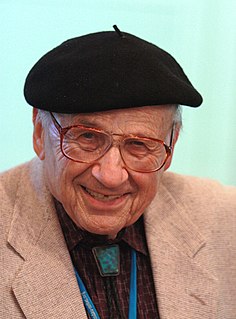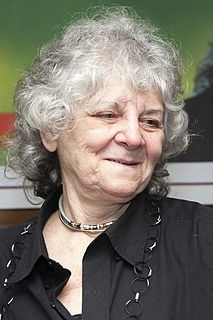A Quote by Kurt Vonnegut
I am a very bad scientist. I will do anything to make a human being feel better, even if it's unscientific. No scientist worthy of the name could say such a thing.
Related Quotes
I am very much a scientist, and so I naturally have thought about religion also through the eyes of a scientist. When I do that, I see religion not denominationally, but in a more, let us say, deistic sense. I have been influence in my thinking by the writing of Einstein who has made remarks to the effect that when he contemplated the world he sensed an underlying Force much greater than any human force. I feel very much the same. There is a sense of awe, a sense of reverence, and a sense of great mystery.
I always say that, like a scientist or anyone, you always want to be the problem-solver. You feel like, if you solve the greatest mystery or the greatest problem, then that makes you brilliant. It's the same thing with an actress. You want to be able to really tackle a character and make it a fully-dimensional human being who is complicated, funny and all the things that a person could be.
We scientists have fantasies of being uniquely qualified to make great discoveries. Alas, reality is cruel: most of us are replaceable. For the vast majority of scientific contributions, if scientist X hadn't achieved it that year, scientist Y would have achieved the same result or something very similar soon thereafter.
The scientist is not much given to talking of the riddle of the universe. "Riddle" is not a scientific term. The conception of a riddle is "something which can he solved." And hence the scientist does not use that popular phrase. We don't know the why of anything. On that matter we are no further advanced than was the cavedweller. The scientist is contented if he can contribute something toward the knowledge of what is and how it is.




































